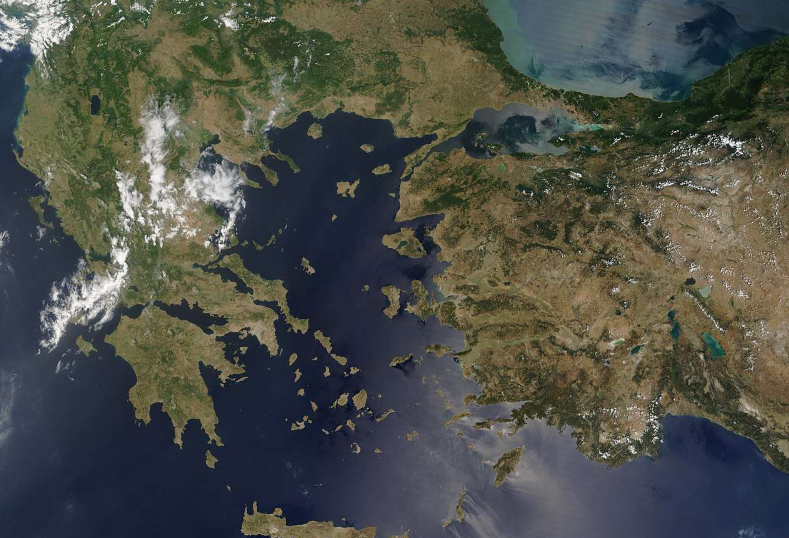Greece’s unveiling of two expansive marine parks in the Ionian and Aegean seas has drawn sharp criticism from Turkey, rekindling longstanding maritime disputes between the two NATO allies despite recent efforts to normalize relations.
Unveiled on Monday by Prime Minister Kyriakos Mitsotakis, the two parks — one in the Ionian Sea and the other in the southern Aegean — would cover 27,500 square kilometers, making them the largest protected marine areas in the Mediterranean. Greece says the initiative will help it achieve the global target of safeguarding 30% of marine waters by 2030, well ahead of schedule. The public will have until September 22 to comment on the plan before it moves toward formal approval by decree.
“These parks will be vast sanctuaries for life beneath the waves,” Mitsotakis said in a video message, portraying the move as part of Greece’s commitment to future generations. Bottom trawling — a practice widely criticized for its ecological impact — would be banned entirely within the zones.
But while Greece highlights the ecological urgency, Turkey hears something different in the splash: a political signal.
From Conservation to Confrontation?
In Ankara, officials quickly issued a statement dismissing the legal relevance of the parks, particularly in the Aegean — a sea whose rocky outcrops, islets, and territorial lines have been the subject of dispute for decades.
“These actions will have no legal consequences regarding issues whose status remains unresolved under international treaties,” Turkey’s Foreign Ministry said. It warned that unilateral decisions in semi-enclosed seas like the Aegean run counter to international maritime norms, which emphasize cooperation among coastal states.
Ankara has long argued that even ostensibly neutral acts — like marine zoning or conservation designations — risk being interpreted as political claims in a sensitive geography. “We are not questioning Greece’s desire to protect marine life,” one Turkish official told local press. “But when actions touch on disputed areas, the spirit of cooperation must come first.”
Turkey says it is preparing to unveil its own marine protection initiatives, promising a model based on coordination and mutual recognition.
The Ghosts Beneath the Surface
For both countries, the Aegean is more than a body of water — it’s a map of memory, conflict, and lingering mistrust. Despite recent efforts at reconciliation — including the Athens Declaration on Friendly Relations and Good Neighborliness signed last December — the undercurrents of historical rivalry remain strong.
The situation recalls other flashpoints. In 2019, Turkey signed a maritime agreement with Libya’s Tripoli-based government, establishing an exclusive economic zone that cut across waters claimed by Greece. The move drew condemnation from Athens and Brussels. Last month, Libya’s parliament reaffirmed its backing of the deal, dismissing European criticism as interference in domestic affairs.
Ankara sees these legal and diplomatic developments not as isolated events, but as parts of a broader contest over influence in the eastern Mediterranean — one in which environmental policies are increasingly viewed through a strategic lens.
Parallel Agendas, Shared Waters
Greek officials stress that the marine parks are entirely within Greece’s territorial waters, and are about ecology, not geopolitics. But their proximity to disputed maritime zones makes them politically sensitive nonetheless. The Aegean park, in particular, lies in an area long at the heart of tensions over sovereignty, airspace, and maritime jurisdiction.
Despite the friction, both sides insist they are open to dialogue. “Turkey remains ready to cooperate with Greece, as a fellow Aegean coastal state,” the Turkish Foreign Ministry said. Whether that cooperation can materialize — or whether the parks become another symbol of separation — remains to be seen.
For now, Greece is moving forward. After the public consultation ends in September, the Council of State is expected to review the proposed decrees, paving the way for official establishment of the parks by year’s end.
Meanwhile, eyes will turn to Ankara’s next move — and whether its marine initiatives will parallel Greece’s in ambition or challenge them in form.



